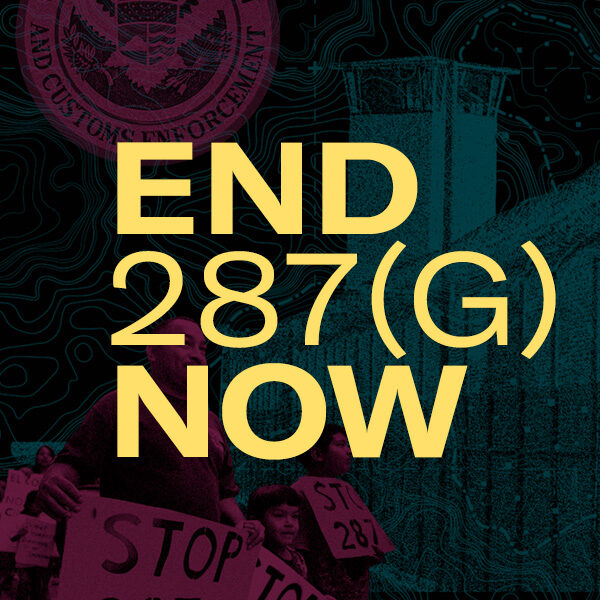On the Frontlines of the Fight Against Mass Deportation
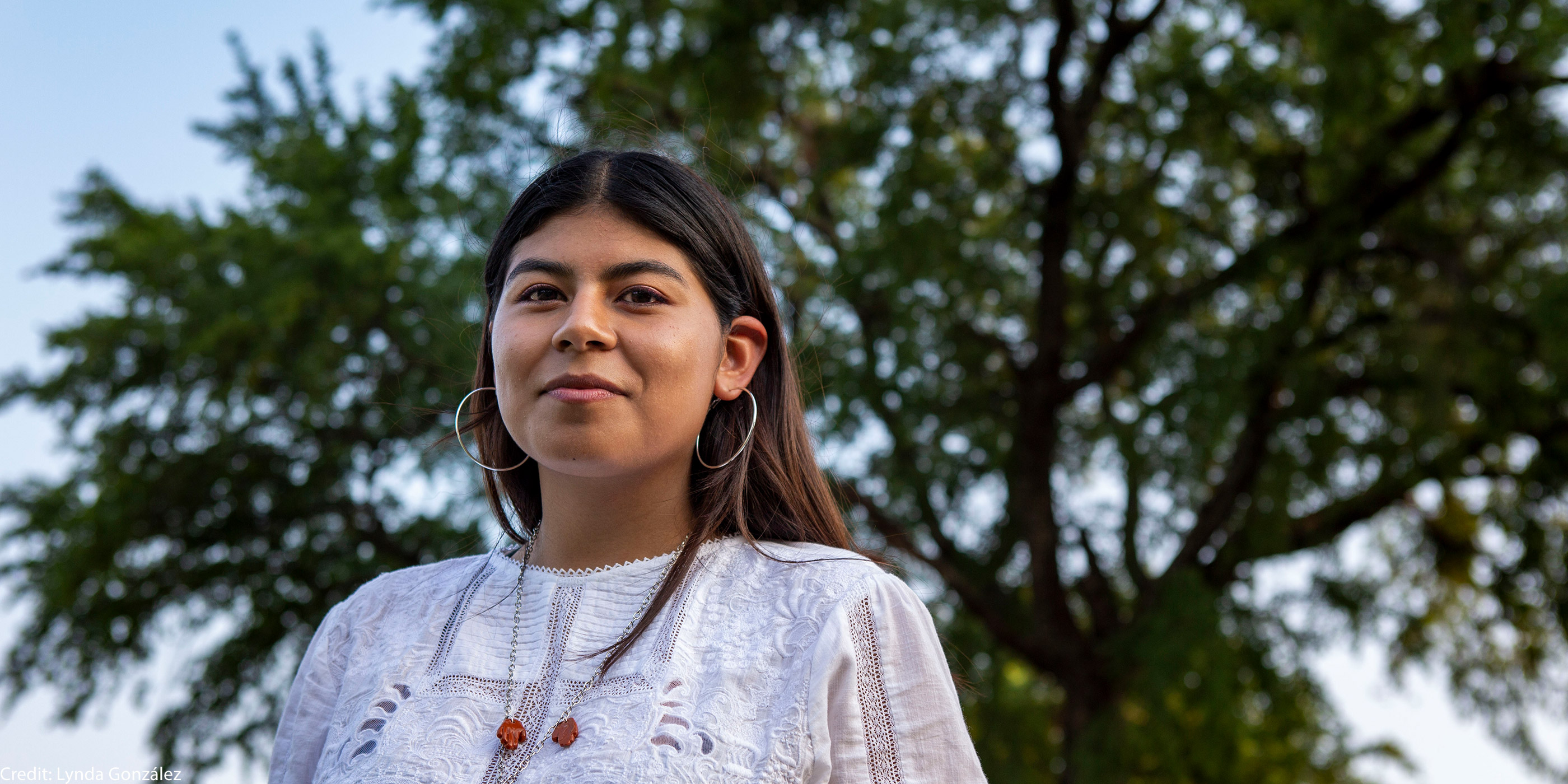
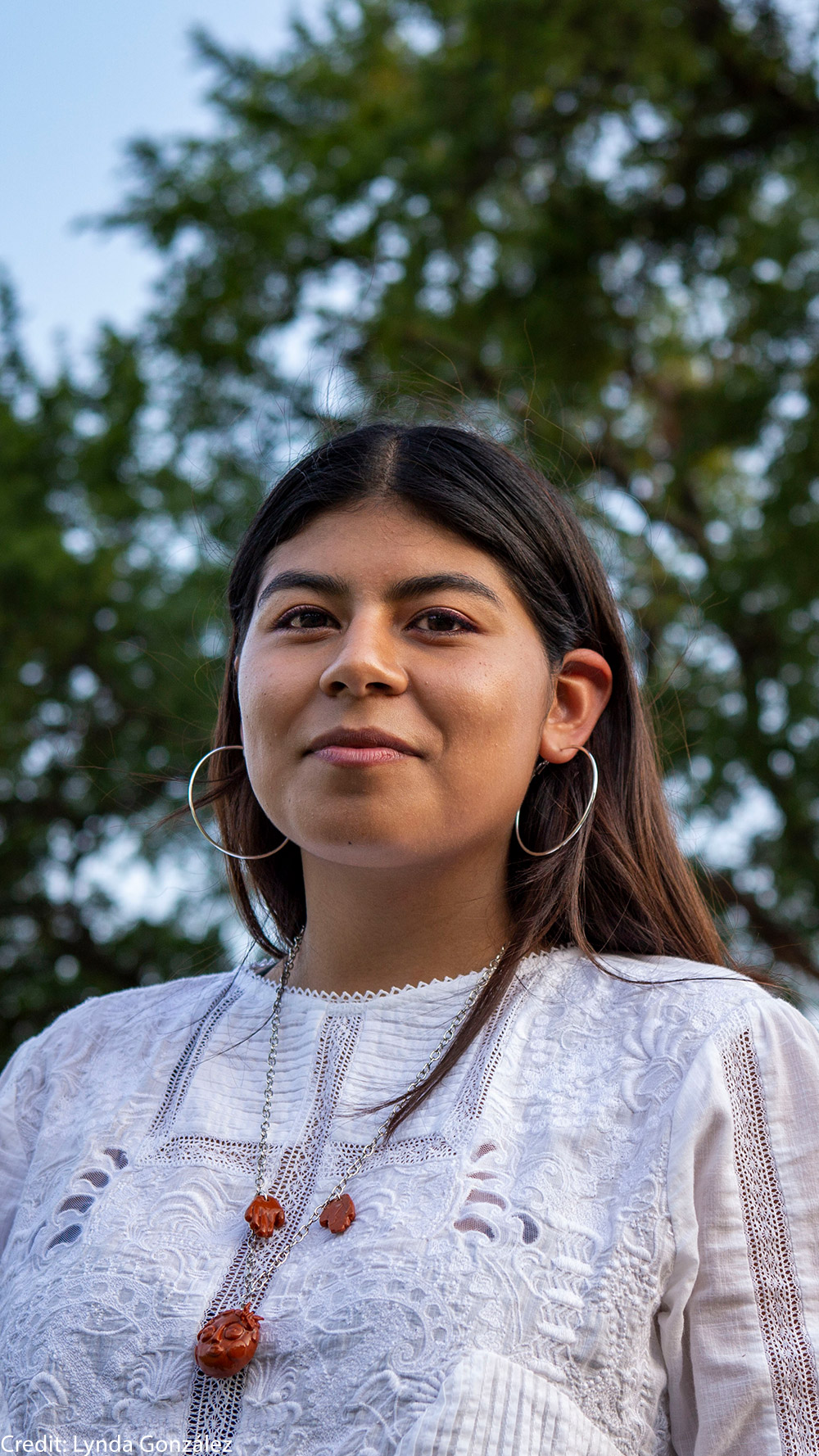
In states and counties across the country, sheriffs and other local law enforcement are partnering with Immigration and Customs Enforcement (ICE) to detain and deport immigrants from their own communities. 287(g) agreements turn police and sheriffs’ deputies into ICE agents, with the result that even minor infractions like traffic stops can result in life-altering consequences for immigrants.
In a new report, the ACLU documented how dozens of sheriffs participating in ICE’s 287(g) program have records of racism, abuse, and violence. As a result of the racial profiling that’s endemic to the program, immigrants and non-immigrants alike live in fear of being stopped, deported and detained, and torn from loved ones as they go about their day-to-day lives.
While the program significantly expanded in size as part of Trump’s anti-immigrant agenda, it has not been curtailed under the new administration despite President Biden’s stated commitment to end contracts initiated by Trump. You can help us fight back by sending a message to the Department of Homeland Security demanding an end to the 287(g) program.
We spoke with three organizers leading the fight against these law enforcement partnerships about what it’s like to live in a community operating under 287(g), how to mobilize communities and empower people to act, and their vision for a future free of this harmful program.
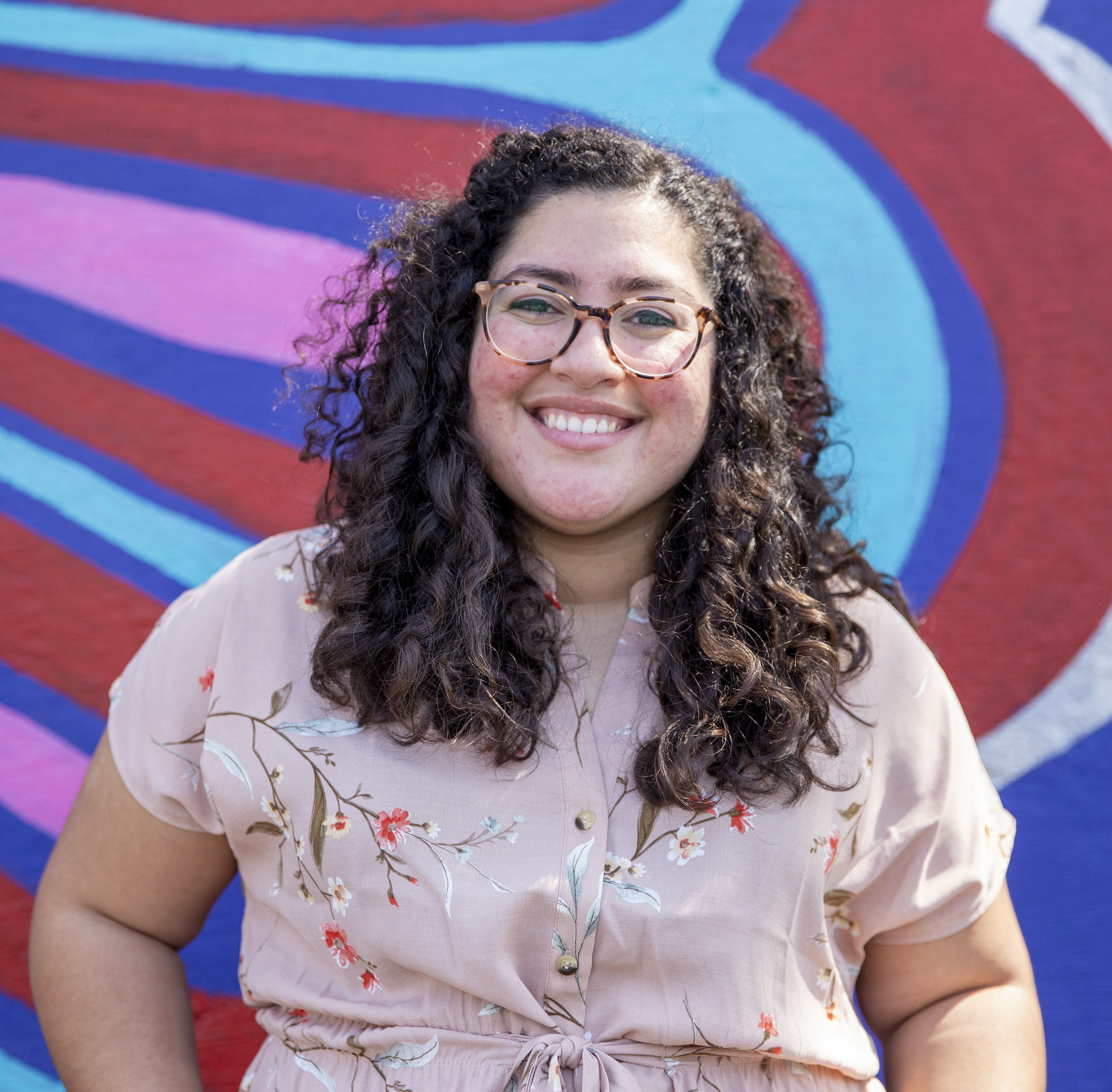
Credit: Ashley Mungo
Stefanía Arteaga
Regional Immigrants' Rights Strategist, ACLU of North Carolina
Charlotte, North Carolina
How does the 287(g) program affect people’s daily lives in your community?
It can be really scary for folks to even drive down the street. In my neighborhood, if you wanted to go to Walmart you had to go through a one-lane road that was being used to stop people. I lived nearby so I would see people getting arrested in front of their children. It was really traumatic to see.
Was there a specific turning point that made you realize you needed to fight back?
We used to have a sheriff's department checkpoints in an area of town with a lot of country roads and soccer fields. It was common to see the sheriff's department use those roads as checkpoints, knowing that there were people coming out of soccer games who did not have documentation. And so that's kind of what led me to take action.
Who are your allies in the movement?
We work closely with Black community members on issues like solitary confinement, juvenile detention — issues that impact both of our communities. So we really did a good job of sharing our experience with the Black community and vice versa. We also worked with our local Women's March chapter. They were very often white women who were not personally impacted by 287(g) but were interested in supporting us after we reached out and educated them about what was going on in immigrant communities.
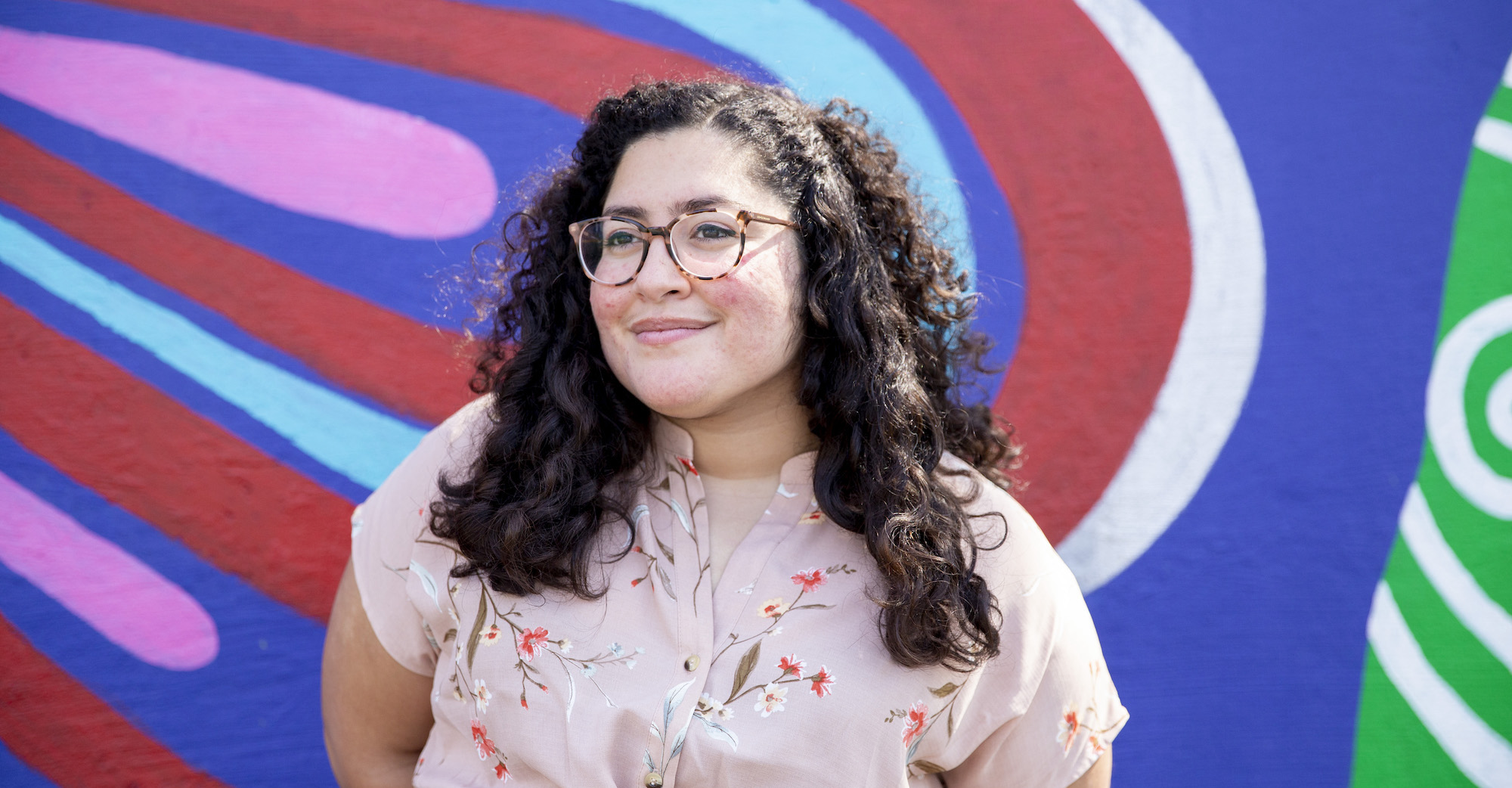
Credit: Ashley Mungo
What message do you want to impart with your story?
Perseverance. I really encourage folks who are reading this to ask questions, organize, and mobilize, because there's a serious power within communities to bring about change in local law enforcement. During the Trump administration, a lot of the focus was on federal policies. But in local elections, we have a lot of power to hold the government accountable. Your neighbors, family, friends — we can all make change happen in our own communities.
Margarita Molina
Community Volunteer, RISE / Levántate
Frederick, Maryland
How did you learn that local police were working with ICE in your community?
I live in a diverse area with a large immigrant population and people of all colors and races. There are Hispanic restaurants and stores, so I feel very at home here. But the police think it's a dangerous area, so they are always around. They seem to think, “Where there are immigrants, there is crime.”
I didn’t know the police were working with ICE until I met a young lady in the supermarket whose husband had been arrested. I wanted to help and get more information, so I went to a meeting in the community, and that is where I learned all about 287(g).
"One of the biggest challenges is getting families to trust us when we tell them they do have rights. Many believe that because we are immigrants, we should just put our heads down and say nothing..."
How has the 287(g) program shaped your community’s relationship with the police?
People are scared of the police and do not trust them to help in times of need. Even if a person is in danger, many wouldn’t dare call the police for protection, for fear it may lead to their arrest for not having papers. Interactions with police are usually negative, even for those of us with papers, who may still be stopped or arrested because of racial profiling.
For example, three community members were stopped on their way to work one day. They were going to their construction jobs, and had left their IDs at home rather than bring them to work. They did nothing wrong — no traffic violations — but the police stopped them anyway, and refused to let them go get their IDs. They were arrested and taken to jail. One of the men’s wife was pregnant and almost lost her baby because the whole ordeal was so stressful. They had to pay for a lawyer, even for their own ankle monitors, and ended up with so much debt because of that one traffic stop.
What are some of the biggest challenges you face as an organizer?
One of the biggest challenges is getting families to trust us when we tell them they do have rights. Many believe that because we are immigrants, we should just put our heads down and say nothing, that we don't have any rights and can’t do anything about the abuse and fear we experience every day under 287(g). That’s why it’s so important to educate people about the rights we have as immigrants, so they feel empowered to make a difference in their community.
What kind of change do you hope your work will help bring about?
My goal is to get the whole community to unite and work together to eliminate 287(g) from the city. That’s why we are working to provide people with information to navigate situations with law enforcement. Often, they don’t have access to any information or guidance for dealing with law enforcement, especially if they cannot speak English. Now people are feeling more empowered to defend themselves in situations where they used to feel powerless. The police are aware of that, so we are not being persecuted as we were in the past.
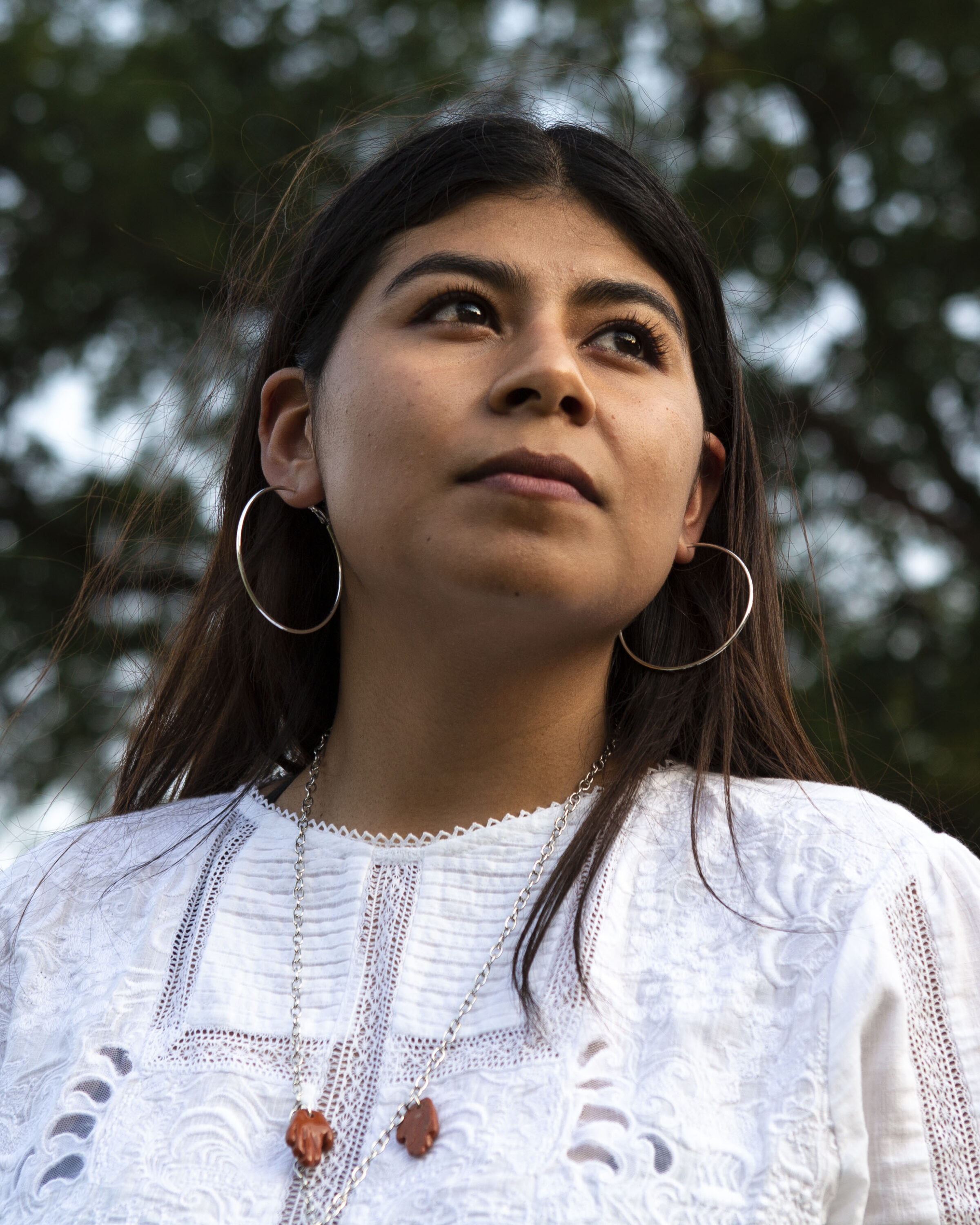
Credit: Lynda González
Sindy Mata
Community Organizer
Fort Worth, Texas
How did you start organizing against the 287(g) program?
I grew up in Fort Worth and specifically on the south side, which is a predominantly immigrant community, and my parents are also immigrants. So I was always surrounded by people who were directly impacted by policies like 287(g). When I first learned about how ICE was partnering with local police to detain and deport people, I knew I had to do whatever I could to fight back. I started organizing in my community after college and it just continued from there.
What does organizing look like in your community?
One of the initial ways we would organize was through neighborhood house gatherings. People would open up their homes and let us use that space to provide members of the community with resources and information to help navigate common interactions with law enforcement, like what to do when you’re stopped by the police.
Some members of the community keep a low profile for fear of repercussions from immigration [officials] and law enforcement. Often, home gatherings can provide a safe space to start getting involved in the comfort of their own communities. We use the opportunity to provide information and guidance for navigating common situations with law enforcement, like what to do if you get stopped by the police. Many come away learning they have more power than they thought.
Home gatherings also give us the opportunity to share our own stories and demonstrate our personal connections to the cause, but most importantly it allows us to invite people in our community to take action and organize to fight the systems causing us harm. We are not just activists — we come from the same neighborhoods impacted by law enforcement. Establishing these connections helps build trust within impacted communities.

Credit: Lynda González
Do you face any barriers in your advocacy and organizing efforts?
The lack of transparency from sheriffs’ offices has been a major obstacle. When we started advocating for people and raising awareness about what the sheriff’s deputies were doing to our communities, our county jail responded by removing public information so that we couldn’t understand what was happening, why someone was being detained, or the charges against them. Sheriffs would refuse to provide information, even to the families of people detained or deported. So sometimes people don’t know why their loved one was arrested or where they are detained, or even whether they’re dead or alive. There is no transparency or accountability.
What is the ultimate goal you want to achieve as an activist?
It is extremely important for us to continue to remind folks that there are people who are in detention due to 287(g), right now, and that we will continue to fight for their freedom.
Read the ACLU's report License to Abuse: How ICE’s 287(g) Program Empowers Racist Sheriffs and Civil Rights Violations below:
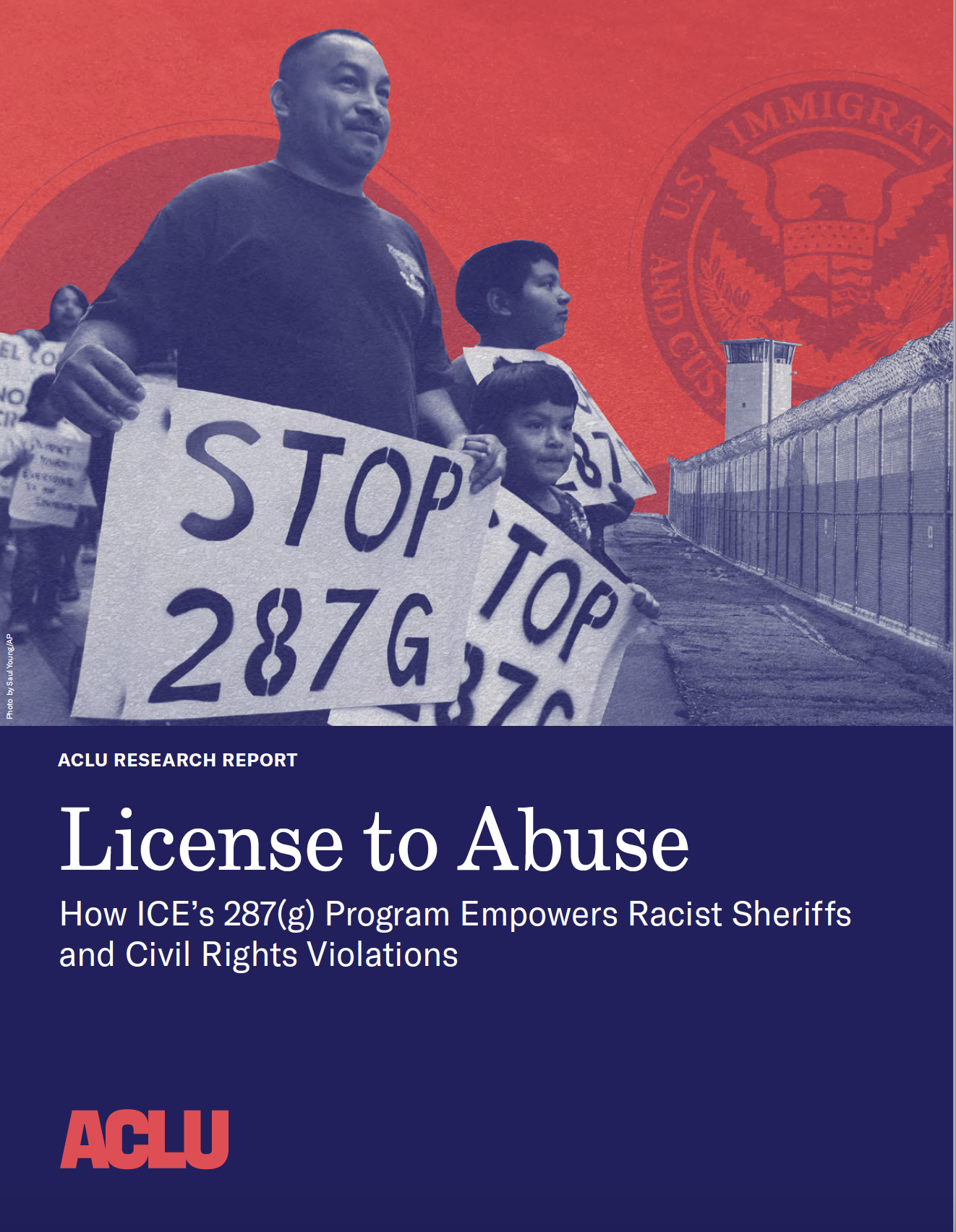
License to Abuse: How ICE’s 287(g) Program Empowers Racist Sheriffs
Source: American Civil Liberties Union
